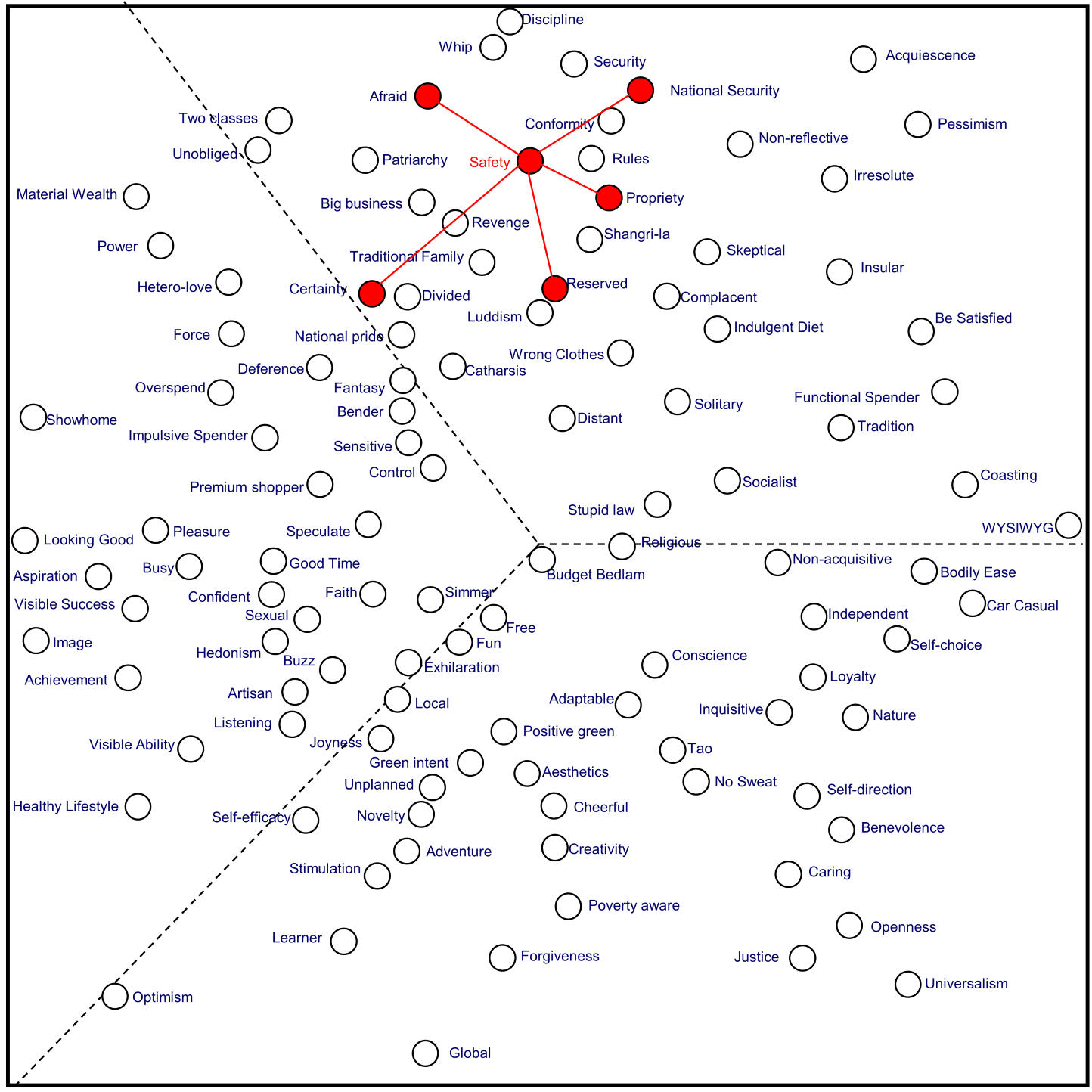

SAFETY
 |
I think it is important to live in secure surroundings.
I avoid anything that might endanger my safety.
We all have basic needs to feel safe and secure; however, espousers of this attribute find that these needs dominate their life, influencing everyday decisions and activities. Not feeling safe in most circumstances in their daily life they are more focused on potential threats to themselves and their livelihood. Espousers have a tendency to perceive more threats and a higher degree of threat than other people.
By extension, this results in greater demands for control over things that may cause disorder, uncertainty or instability. Though this is a values system generated approach to life, it often correlates with groups of people in relatively modest circumstances or those not in the mainstream of cultural events, e.g. particularly for people from low income households and individuals who are over 65 years of age.
As well as trying to control their physical and social environment in order to feel safe, they like to have some sense of control over their own instincts, feelings and behaviour. One symptom of this is to have clear rules to live by. They may not set the rules themselves, but this does not matter, as long as the rules are consistent and shared by the majority of people in their community.
Seeing themselves as exemplars of model behaviour who always conform and do the right thing, they can impose high standards on themselves, to ensure that they conform and are seen to conform to society's generally accepted rules of good conduct. They see compliance with rules and regulations, resistance to change and maintenance of the status quo as something to be admired.
Their underlying driver is fear - fear of coming to physical or emotional harm. These fears, and the need to control them, result in limits
and restrictions on how they live, work and play. Their fears stretch from being afraid to walk in their local neighbourhood to worries about
threats to the country as a whole, alongside fear of anything that undermines social order. As well as fear of physical harm, such people are highly
sensitive to the opinions of others, particularly negative views. They try to avoid doing anything that people would say is wrong. Not wanting to
upset the boat, they prefer to stay quiet and only talk when others make the effort. They like to be inconspicuous and melt into the background.
Using SafetyDemographic Skews: 1) Over-indexed: Female, over 65, down-market. 2) Under-indexed: Male, under 21, up-market. Safety espousers also espouse other Attributes. The top five most highly correlated Attributes of Safety espousers are, in order of the strength of relationship: 1) Afraid In total those who espouse Safety also over-index significantly on 27 other Attributes. |
|
If "Safety" (or the associated attributes) are important to you and you would like to delve more deeply, contact us at mail@cultdyn.co.uk
